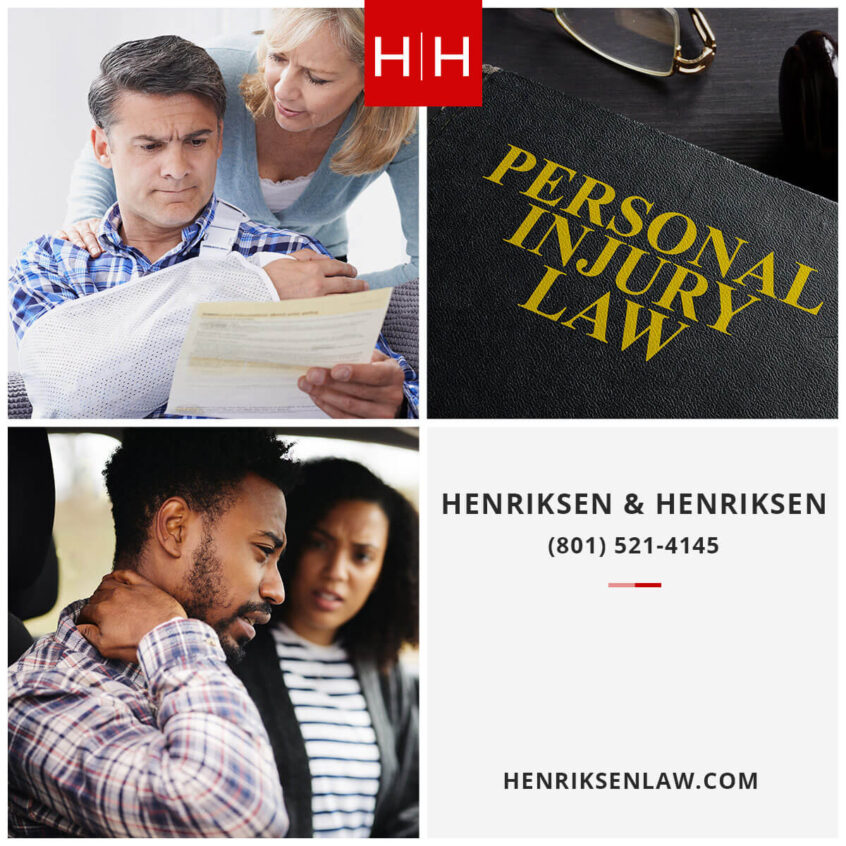Personal Injury Attorneys: 9 Do’s and Don’ts of Personal Injury Cases

The USA is seeing a record spike in auto accident fatalities. According to a report by the National Highway Traffic Safety Administration, an estimated 42,915 people died in motor vehicle crashes last year, a 10.5% increase from the 38,824 deaths in 2020. Presumably, some of these events may have led to personal injury lawsuits.
When you have a personal injury case, it’s crucial to do everything you can to recover rightful damages. While your personal injury attorney can offer more specific advice, here are a few general do’s and don’ts you should keep in mind.
5 Do’s of a Personal Injury Case
The moments following an accident are overwhelming. However, staying calm and acting fast can make all the difference to your case. Start by:
1. Seeking Immediate Medical Attention
Do not pass up on medical care after an accident, even if your wounds are not readily apparent. Remember, soft tissue injuries and concussions can take days, weeks, or even months to show up, and you don’t want to leave them untreated for that long.
Moreover, when you refuse medical help, the insurance company may argue that you did not suffer any real injuries.
An evaluation and follow-up visit with your doctor will help you kick start your recovery journey on the right foot. In cases of severe injury, record your medical visits as proof of the accident’s impact on your well-being.
Furthermore, keep organized and detailed records of your medical bills. If you can’t manage this alone, ask a friend or family member for help.
2. Collecting Evidence
Gathering evidence after an accident is a no-brainer. However, you must get to it before law enforcement clears the scene. Anything that may seem relevant to the accident can qualify as evidence, including:
- Weather conditions – did foggy weather affect visibility?
- Lighting on the road
- Witness statements
- Skid marks
- License plate numbers
In this regard, photographs and videos are two of the most popular forms of physical evidence. The trick is to know how to collect them correctly. Here are some tips you can implement.
- Modern smartphone cameras can capture sufficient detail and accurate light conditions. Plus, they are the most easily accessible option. But you can always opt for an old-school camera.
- Take pictures/videos from multiple angles. That way, you can pick out the ones that highlight your points of contention.
- Ensure the pictures/videos have time stamps on them.
3. Getting a Copy of the Police Report
Utah law requires accident victims to notify the nearest law enforcement agency through the quickest means of communication available. Once the police arrive at the scene, make sure you get your statement recorded in the accident report even if it is not necessary. Jot down the responding officer’s badge number and other details to request a copy for future reference.
4. Contacting a Personal Injury Lawyer
Personal injury cases can get ugly faster than you think. Insurance adjusters are notorious for coaxing people into lowball settlements. What’s more, they rarely play fair.
Given your traumatized state, you don’t want to go into a personal injury lawsuit alone. A personal injury attorney will fight and protect your legal rights till the end. They will investigate the accident, consult experts, talk to witnesses, and build a solid case on your behalf. They can even represent you in a trial if the case is not settled out of court.
Working with a personal injury law firm can bring you the peace of mind you need to get back on your feet. With a personal injury lawyer defending you, you can focus on recovering.
5. Identify the Type of Compensation You Should Receive
Depending on the nature of your lawsuit, you may be eligible for several types of compensation, such as:
- Doctor visits
- Medical equipment
- Lost wages
- Punitive damages
- Emotional distress
- At-home care
- Prescription medication
Your personal injury attorney should be able to list all recoverable damages and chalk up a rough estimate of your final settlement.
4 Don’ts of a Personal Injury Case
Now that we’ve established the do’s of personal injury cases, it’s time to take a look at the don’ts. Knowing what pitfalls to avoid can effectively prevent you from jeopardizing your claim.
1. Never Leave the Scene
As terrifying as it is to be in an accident, you should never drive away. Not only is this illegal, but it can also hurt your case in the long run. Remain at the accident site till the police and paramedics arrive.
2. Never Admit Fault
Even if you believe you were partially to blame for an accident, avoid admitting fault to the other driver, the responding officers, or the insurance company. This is because:
- You may be missing critical information that contributed to the collision.
- You will have a difficult time changing your statement later.
- You may lose your right to compensation.
Likewise, do not assign blame to anyone involved. Keep personal opinions to a minimum and only answer the questions you’re asked. During the settlement process, let your personal injury lawyer do the talking.
3. Never Accept a Quick Settlement
Let’s face it: insurance agencies are not your friends. They’ll try to brush your case aside by sticking you with a ballpark figure that’s not even close to what you require. After all, it’s their job to save their clients’ money.
However, once you accept the initial offer, you forfeit your right to pursue further damages. That’s why we recommend against settling until you have recovered completely. This way, you’ll know exactly how much you need to cover your medical and related expenses.
4. Never Discuss Your Case
Do not discuss an active personal injury case with anyone except your attorney. Rumors have a way of mutating as they spread around, and the last thing you want is an insurer picking up on false declarations. Remember, any information can be taken out of context and used against you, so it is best to keep the entire case under wraps.
The Bottom Line
There you have it: nine do’s and don’ts of a successful personal injury case. It’s worth mentioning here that this list is not exhaustive. You will probably have to make further adjustments based on the scope of your case. However, it’s certainly a great jumping-off point.
Are you looking for a qualified personal injury lawyer to analyze your claim? The attorneys at Henriksen & Henriksen will be happy to help. With extensive experience in and out of court, we can help you seek the compensation you deserve. For more information, contact us today!
